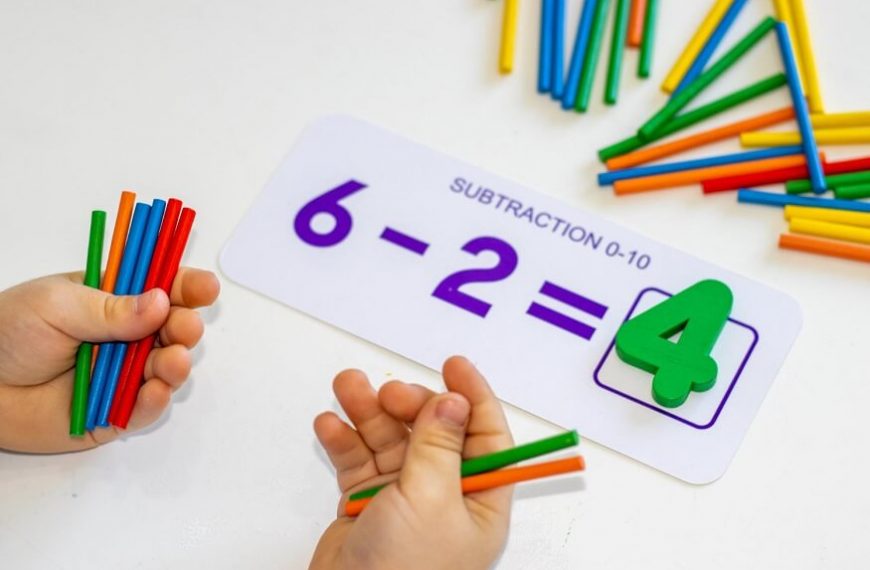There are no age, cultural, or geographical barriers to mathematics. It is an essential tool for describing the world around us and aids in our comprehension of links and patterns in many contexts, from nature to business. The value of mathematics in India, where the educational landscape is continuously changing, cannot be overemphasised. A considerable portion of individuals feel Maths anxiety, according to a study published in the National Library of Medicine. This underscores the importance of integrating Maths into daily routines from a young age, fostering a positive relationship with this essential subject. Let us understand the importance of mathematics in everyday life and the benefits of Maths and seek an answer to why Maths is important.
10 Reasons Highlighting the Importance of Mathematics
Mathematics is not just a subject; it’s a life skill. It enhances logical reasoning, aids in everyday tasks like budgeting and time management, and is a universal language that transcends cultural barriers. In professions ranging from engineering to arts, maths finds its application, making it an indispensable part of our lives.
1. Develops Critical Thinking Skills
Children are eager to understand the world around them. This innate curiosity is the bedrock of critical thinking. With its structured yet expansive nature, mathematics provides the perfect platform to hone this skill. When children engage with mathematical problems, they are compelled to analyse situations, break them down into simpler parts, and devise logical solutions. This process not only sharpens their analytical skills but also encourages innovative thinking. Over time, as they grapple with more complex problems, they develop a structured approach to problem-solving, which proves invaluable in academics and real-life scenarios.
2. Fosters a Healthy Brain
The brain, like any muscle, strengthens with use. Engaging in mathematics in daily life is like a workout for the brain. Children who regularly solve math problems show increased brain activity in areas related to attention, focus, and problem-solving. This enhances their math skills and boosts their cognitive abilities in other subjects.
3. Teaches Resilience in the Face of Failure
Setbacks are an inevitable part of life. However, the ability to bounce back from failures is what sets individuals apart. Mathematics, with its inherent challenges, teaches children this resilience. Every incorrect answer and every miscalculation presents an opportunity to learn, adapt, and grow. Over time, children come to understand that failures are not dead ends but simply detours on the path to success. This growth mindset, fostered through mathematics, equips them to face life’s challenges with confidence.
4. Enhances Understanding of the World
The world operates on mathematical principles. From the changing seasons governed by nature’s cyclical patterns to the financial systems underpinning our economies, math is everywhere. A solid understanding of mathematical concepts allows children to make sense of the world around them. Moreover, maths equips kids with skills to tackle everyday tasks, be it estimating travel durations or managing their pocket money. In essence, math offers them the tools to navigate life efficiently.
5. Encourages Creativity
While mathematics relies on logic and structure, it also involves a significant degree of creativity. In reality, creative problem-solving is necessary for some of the most challenging mathematics issues. When exposed to such problems, children learn to approach them from various angles, tapping into their creative reserves. Over time, they develop the ability to visualise abstract concepts, think spatially, and devise innovative solutions, skills that are invaluable in both artistic and scientific pursuits.
6. Sharpens Decision-Making Abilities
Life is a series of decisions, some trivial, some monumental. Mathematics, with its emphasis on logical reasoning, equips children with the skills to make informed decisions. Whether choosing the best strategy to solve a maths problem or deciding how to allocate their time among various tasks, the logical framework maths provides is invaluable.
7. Boosts Self-Confidence
Solving a challenging math problem gives children a unique sense of accomplishment. Every time they solve a maths problem, they gain a sense of confidence that boosts their self-worth. With time, this confidence spills over to other areas of their lives, making them more self-assured, confident, and assertive.
8. Promotes Persistence
The path to mastering mathematical concepts is often riddled with challenges. However, every challenge surmounted reinforces the value of persistence. Children learn that even the most daunting problems can be overcome with consistent effort and a never-give-up attitude.
9. Imparts Essential Life Skills
Mathematics goes beyond textbooks and classrooms. It imparts essential life skills that individuals rely on every day. From budgeting personal finances to understanding cooking measurements, maths plays a pivotal role. Its universality also makes it a bridge across cultures, facilitating communication in our interconnected world.
10. Makes Learning Fun
The digital age has transformed the way children learn. With many apps and platforms integrating gamification, learning maths has become an engaging and enjoyable experience. While making learning fun, these platforms ensure the core concepts are effectively imparted.
How to Improve Maths Education?
Improving maths education is pivotal for future generations. A few strategies include:
1. Real-world Applications: Integrate real-life examples to make maths more relatable.
2. Incorporate technology: Utilise educational apps and platforms to make learning interactive.
3. Hands-on Learning: Use manipulatives and practical activities to explain concepts.
4. Customised Learning Paths: Recognise that every child is unique and tailor the learning experience accordingly.
How Can Parents Incorporate Mathematics in Daily Life?
Mathematics isn’t limited to the classroom. It is all around us. Parents can easily turn everyday moments into learning opportunities to help children understand the benefits of mathematics and enjoy it. Here are some practical ways to weave math into daily routines:
1. Take Kids for Shopping
Take your little one along for grocery shopping and involve them in price comparisons, calculating discounts, and checking totals. Let them help create a shopping list and stick to a budget. It’s a great way to introduce concepts like addition, subtraction, multiplication, and percentages.
2. Introduce Fractions, Ratios, and Temperature During Cooking
The next time you plan to whip up a special dish for your kids, involve them. Invite them to measure ingredients, count items, or adjust a recipe for more or fewer servings. Involving your kids in cooking is a great way to naturally introduce fractions, ratios, and even temperature conversions in a fun, hands-on way.
3. Travel and Navigation to Understand Distance, Speed, and Time
Use travel time to explore distance, speed, and time calculations. Let your child estimate a trip’s length or track the route on a map. Older kids can be introduced to GPS apps and how they use math to calculate directions and time.
4. Time Management
Help your child plan their day using a clock or calendar. Tasks like scheduling activities or calculating time left before an event encourage time sense and basic math.
5. Sports and Games
Encourage your child to keep score, calculate averages, or predict outcomes in their favourite sports. Additionally, you can also play board games and card games that involve counting or strategy, which are also fun ways to sharpen math skills and understand the benefits of the importance of mathematics.
6. Music and Dancing
Use rhythm and beat counting to discuss patterns, fractions, and timing. Whether you clap to a rhythm or follow steps in a dance, there’s math in movement.
Take Away
The importance of mathematics in your little one’s life is undeniable. It shapes their logical reasoning abilities and enhances problem-solving skills. As we navigate an increasingly complex world, a strong foundation in mathematics is crucial for success. Looking for different ways to introduce mathematics to your toddler? Check out our blog, How to Introduce Maths to Your Toddler, for tips. Don’t forget to check out EuroKids Blogs for more information on your little one’s development and learning.
For parents seeking a holistic educational experience for their children, EuroKids offers a perfect blend of learning and play. Recognised for its emphasis on experiential learning, EuroKids ensures that children grasp fundamental concepts, including mathematics, in a nurturing environment. So, give your child the EuroKids advantage and set them on a path to lifelong learning.















